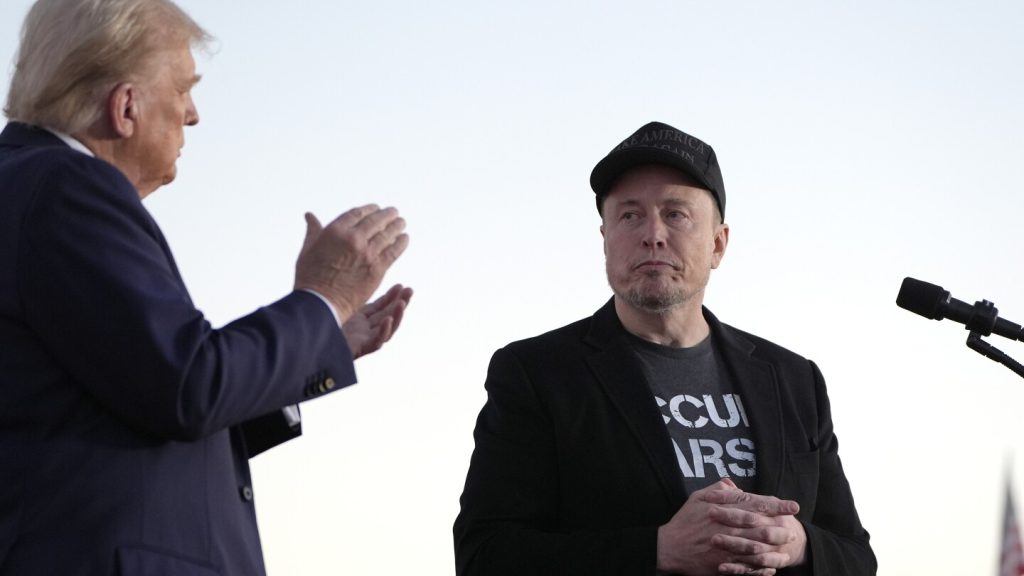Background of the Case
NEW YORK (AP) — A federal judge, Jeannette A. Vargas, in Manhattan issued an order on Tuesday to maintain a temporary ban that prevents Elon Musk’s Department of Government Efficiency (DOGE) from accessing Treasury Department records containing sensitive personal data for millions of Americans. This ban was initially put in place last week by another federal New York jurist in response to a lawsuit filed by 19 Democratic attorneys general against President Donald Trump. The lawsuit argues that the DOGE team, composed largely of political appointees, should not have access to the highly sensitive Treasury records, which include information such as Social Security numbers and bank account details. These records are typically handled by civil servants who are specially trained in their protection and management.
Judge Vargas’s Order
Judge Vargas’s order on Tuesday was aimed at clarifying the scope and reach of the ban. While she maintained the ban to allow for further legal proceedings, she made several adjustments. One significant change was to specify that Treasury Department officers nominated by Trump and confirmed by the Senate can access the records. This clarification ensures that Treasury Secretary Scott Bessent, who falls into this category, is not subject to the ban. The adjustments were made to address some of the concerns raised by the Justice Department, which had argued that the ban was overbroad and infringed on the constitutional rights of the executive branch.
Legal Arguments and Constitutional Concerns
The Justice Department, represented by attorneys from both Washington and New York, filed a strong objection to the ban on Sunday. In their filing, they argued that the ban was unconstitutional and represented a “remarkable intrusion on the Executive Branch.” They contended that there was no legal basis for distinguishing between "civil servants" and "political appointees" when it comes to accessing government records. The Justice Department’s lawyers emphasized that “basic democratic accountability requires that every executive agency’s work be supervised by politically accountable leadership, who ultimately answer to the President.” They further stated that the ban “directly severs the clear line of supervision” required by the Constitution, which could have far-reaching implications for the functioning of the executive branch.
Rationale Behind the Ban
The Democratic attorneys general who brought the lawsuit argue that the DOGE team’s access to sensitive Treasury records poses a significant risk to personal data security. They contend that political appointees lack the specialized training and expertise that civil servants possess in handling such sensitive information. This training is crucial to ensuring that the data, which includes Social Security numbers and bank account details, is protected adequately and managed responsibly. Critics of the DOGE team also point out that its primary mission to find and eliminate wasteful government spending could be compromised if it is allowed to access these records without proper oversight and training. The lawsuit seeks to establish a clear boundary between political appointees and the civil service to safeguard the integrity and security of government data.
Public Reaction and Political Implications
The creation of the Department of Government Efficiency and the subsequent legal battle have sparked a wide range of reactions. Critics of Elon Musk and the DOGE team argue that the department’s access to sensitive data is a dangerous overreach of executive power and could lead to misuse or mishandling of personal information. Conversely, supporters of Musk and the DOGE team praise the initiative as a necessary step to reign in what they perceive as bloated and inefficient government finances. The debate has become a focal point for discussions about the balance of power between different branches of government and the role of political appointees in managing and overseeing sensitive data. The upcoming hearing on Friday will be a critical step in determining whether the attorneys general can secure a permanent ban, further highlighting the contentious nature of this issue.
Future Steps and Hearing
Friday’s show cause hearing is the next significant step in the ongoing litigation. During this hearing, Judge Vargas will consider the arguments from both sides and decide whether the temporary ban should be lifted or extended to a permanent one. The hearing is crucial as it will provide a platform for the attorneys general to present their case more fully and for the Justice Department to respond to the specific concerns raised. For now, Judge Vargas has decided that it is not necessary to delve into the broader constitutional questions, focusing instead on the immediate and practical aspects of the ban. The outcome of this hearing will have significant implications for the future of the DOGE team’s operations and the balance of power within the federal government, as well as the protection of sensitive personal data.












